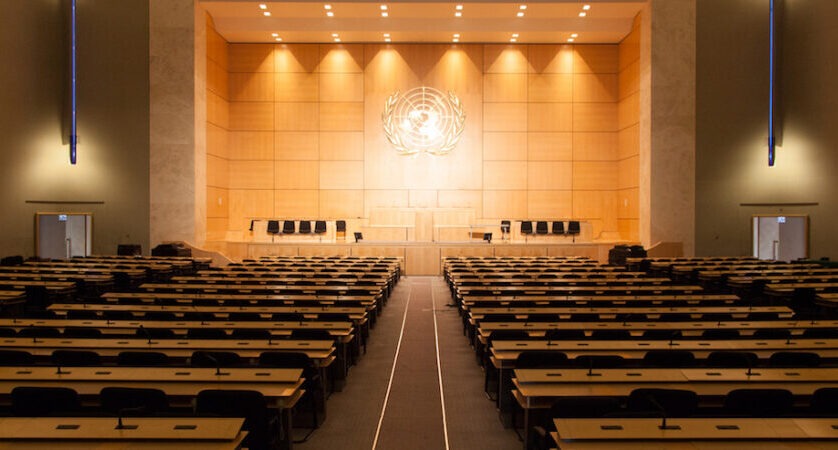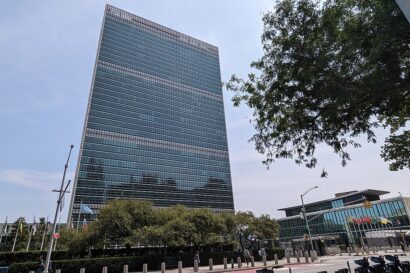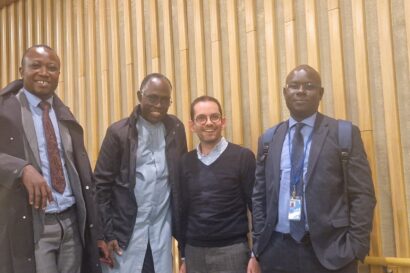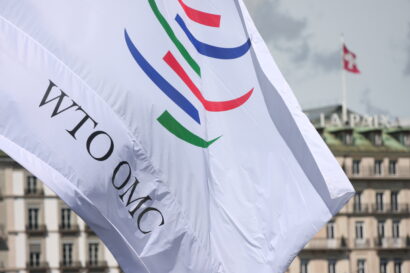With the UN Framework Convention tax negotiations currently underway, one of the most promising but politically challenging solutions, which aims to deliver equitable outcomes, lies with the formalisation and introduction of the special and differential treatment (S&DT) principle. The zero draft of the UN Convention’s Terms of Reference was released on 7 June 2024 and included references to this principle. My article “Agenda Setting and Decision Making under the OECD/G20 IF and the WTO – Developing Countries and Reform” published in Intertax examined the S&DT principle under the international trade dispensation, underscoring lessons learnt which may be applied in the tax regime. This blog highlights the main outcomes of the study.
The transition in international tax rulemaking from bilateral tax treaties to global tax coordination has been a tumultuous one. Countries and coalitions with competing interests have jostled for policy space and favourable global rules under the OECD/G20 Inclusive Framework (IF). The outcome has often resulted in rules which have not reflected issues of interest to the Global South, this includes the adoption of simplified rules and redistribution of taxing rights. Furthermore, deficiencies in the rulemaking process, particularly with regards to agenda-setting and decision-making in the IF has led to discontentment in the Global South, resulting in low-perceptions of input, throughput, and output legitimacy. While rule makers search for solutions within international tax, other comparable multilateral systems may provide critical lessons and a reference to design an optimal system – one which takes into account the needs and interests of all participating Member States.
Contrasting the OECD/G20 Inclusive Framework with the WTO international trade regime
The World Trade Organisation (WTO) international trade regime serves as a useful comparative system. The IF and WTO regimes share multiple fundamental similarities: they have been instrumental in establishing legal infrastructure for the global expansion of multinationals by safeguarding commercial-related rights and benefits. Under the trade regime this is through market-access (reducing conditions and measures for entry of goods into a market) and protection of firms through trade remedies (such as anti-dumping) and dispute resolution. The tax regime, on the other hand, reduces corporations’ tax liabilities through limiting source countries’ taxation rights, and addresses double-taxation for tax certainty. Both regimes are also part of a neo-liberal global economic governance system which had created favourable conditions for firms in the Global North and emerging economies. The two bodies, however, have divergent structural frameworks and rulemaking processes.
Agenda-Setting, developing countries and shortcomings
Agenda-setting is an actor’s ability to strategically shape or set an agenda through creating or reinforcing values and practices that are deemed legitimate. Agenda framing in international relations has been described as a form of ‘soft power’. It involves participants, such as Member States or actors, stipulating what should and should not be included in the scope of deliberations regarding substantive or procedural issues. Furthermore, it precedes decision-making and often influences or formulates the subject of this process.
A comparative examination of the structural institutional architecture and procedural rules reveals that both the WTO and IF share similar agenda-setting deficiencies. Both regimes have increasingly failed to incorporate agenda items that address the needs and issues of developing countries. Under trade, this was recently reflected at the WTO 12th Ministerial Conference (WTO MC12) negotiations where commentators reported persisting exclusionary processes. Agenda items were curated in the green room by a self-contained select group of developed countries at the exclusion of the general membership with rules circumvented under the trade dispensation to attain preferences. Under tax, the IF does not explicitly prescribe agenda-setting processes, but rather utilises OECD rules administered by the Committee of Fiscal Affairs. There is no public information available about specific IF procedures for agenda-setting or participation, limiting stakeholder participation. For example, Pillar 1 negotiations which addresses taxation of digital enterprises under the IF had a number of proposals from developing countries disregarded or rejected, resulting in declining perceptions of legitimacy. Consequently, the African Tax Administration Forum (ATAF) advanced that allocation of taxing rights (specifically on Amount A and residual profit) should be reconsidered as the proposal is inequitable, similarly for the G24 proposal regarding recognition of significant economic presence.
Critical reform to both regimes would entail institutional rules that provide developing-countries with the opportunity to meaningfully contribute at the agenda-setting inception stage. This has the potential to circumvent dissent later on at the rulemaking stage and deliver a common global approach.
Decision-Making and Challenges
When it comes to decision-making, both regimes experienced challenges with consensus-based decisions. Developing countries in the WTO have increasingly utilised transparent treaty-based rules and regrouped in coalitions to gradually push-back, following inequitable neoliberal Uruguay Round rules, and block consensus. This recently occurred at the 13th Ministerial Conference (MC13) where India and South Africa objected the Investment Agreement – which extended to plurilateral rules.
Conversely, the OECD/G20 IF has increasingly and effectively produced tax standards – on account of speedy, but non-transparent decision-making. Despite its shortcomings, it attained output legitimacy based on its ability to produce rules that address Base Erosion and Profit Shifting (BEPS). Its opacity, however, has also been its undoing as the absence of treaty-based administrative rules in its consensus-based rulemaking reduces opportunities to exercise democratic rights, and to push for the interests and preferences of developing country. This was particularly illustrated through the Pillar 2 rules which impose extra-territorial taxation (i.e. affecting countries that were not even part of the discussion) Further challenges arose in the form of tight timelines for input on lengthy, complex rules which require domestic stakeholder input and consequently the necessary resources and capacity, placing developing countries at an disadvantage
Special and Differential Treatment: a solution that requires tweaks
The Special & Differential Treatment (S&DT) principle is a set of provisions that favour developing countries, within the international system context, through preferential or “special” rights. In other words, it recognises and seeks to remedy the asymmetrical – or unequal – economic, technical and political relationship between Global North and South countries. While the principle gained prominence in the WTO, to integrate countries into the trade regime, and in environmental law under the guise of the Common but Differentiated Responsibilities (CbDR) principle in Article 2(1) and Article 4 of the Paris Agreement, the idea has reflected in some of the substantive outputs of global tax governance.
S&DT exists in different forms in the international tax system such as:
- granting developing countries a peer review deferral on dispute resolution under BEPS Action 14.
- further specific rules for “low-capacity jurisdictions” are set out in the Pillar 1 Amount B proposal which provides a simplified approach for transfer pricing with regards to baseline marketing and distribution activities for low tax thresholds to “low-capacity jurisdictions”. This effectively is a flexibility to standard rules, which is a form of S&DT.
The inclusion of these provisions prima facie indicates the recognition of the varying needs and capacities of developing countries, particularly low-income ones. However, the absence of institutional tax governance rules and of a legal framework has meant inconsistent and scarce use and implementation of the principles under the international tax regime. The shortcomings mean:
- no formal recognition of the general S&DT principle;
- no specific binding rights and obligations (save for the two examples provided above), which therefore means the provisions have no legal effect;
- no opportunity or assistance to develop or table proposals in priority areas aligned to low-income countries (LICs) needs.
The UN Framework Convention currently seeks to ‘mainstream’ the principle, through effectively establishing a legal framework in a formal treaty. While this is important, successful and effective implementation of the S&DT is actually dependent on the application of relevant binding rights and obligations.
The lessons learnt from examining the use of S&DT (or its equivalent in other regimes e.g. CbDR) and from identifying shortcomings in its application in international tax, point to five specific areas that S&DT could address in taxation:
- procedural provisions which fast-track proposals from LICs on critical areas (at the agenda-setting phase), such as tax-treaty abuse or increased source-taxing rights;
- substantive provisions allowing flexibility or preferential divergence to implementation of international tax standards – for example higher substance-based income inclusion rules with regards to Pillar 2;
- substantive provisions allowing longer transitional periods to developing countries;
- substantive provisions requiring countries to safeguard the interest of LICs, this could include countries prone to tax-treaty abuse – from tax-treaties with the Global North; and
- technical and financial assistance focused on tax administration capacity, and participation in international tax governance.
This being said, S&DT will undoubtedly require buy-in from developed countries.
While S&DT may deliver meaningful substantive policy options for developing countries, there are apparent shortcomings and lessons from its application under the WTO:
- It is important to establish equitable criteria of eligible countries. This poses a challenge in a world of heterogenous developing states seeking policy space.
- It is critical that the rules are relevant and enforceable. This presents a political and legal solution to counterbalance power asymmetries relevant to developing countries’ needs in the international tax regime.
Summarising comparative differences between both Regimes
The main divergence is the level of institutional formality, which affects structural framework and rulemaking processes.
The trade dispensation is characterised by transparent treaty-based rules, whereas the IF functions on opaque processes. The OECD/G20 IF has been able to achieve some significant global breakthroughs such as Pillar 2, but these have come at a cost of concerns about the legitimacy of its decision-making procedures:
- developing countries’ limited influence at the agenda-setting stage;
- timelines impinging on democratic consultative processes;
- formal and informal pressures on developing countries preventing them from ‘opting out’.
In contrast, under the WTO, clear and written processes and rules (which include S&DT) have provided more opportunities to developing countries.
The Way Forward: two proposals to address shortcomings
- Incorporating binding rule-based S&DT provisions in international tax to address asymmetrical economic, technical and political relationships between Global North and South countries:
As mentioned above, S&DT already exists in global tax coordination through differential treatment. A formal recognition of the principle, and specific provisions/rules which apply to key areas such as agenda-setting would secure participation and buy in from developing countries, while equitably recognising different Member States’ situation. Another proposed intervention is the introduction of a procedural fast-track rule where LICs are provided technical assistance to develop rules aligned with their needs. Following the development of the proposal, developed countries may commit to prioritising it at the formal agenda-setting level. In practice, the technical assistance could be undertaken by a committee which proceeds on case-by-case assessments of needs, for example revenue leakages in extractive-dependent LICs, and develops coordinated solutions that are fast-tracked through the rulemaking framework. This suggestion would address critical BEPS-related issues and challenges of effective participation which already disproportionately affect LICs.
2. Incorporating a plurilateral rulemaking track, to encourage the development of equitable rules aligned with the interests of concerned countries (both from the Global North and South):
On a practical level, this may take the form of stand-alone protocols developed simultaneously with the UN Convention, such as a convention on wealth taxation or Illicit Financial Flows, adopted by countries which seek to address these specific challenges – as has already been included in the Zero draft. The biggest threat to plurilateral rules is if consensus voting is required to get them “over the line”, which may enable other countries to block their adoption. However, given the targeted and narrow application of the rules and countries’ abilities to opt-in/out, it is highly recommended that decision-making on plurilateral rules be determined by way of vote which reflects the general membership and their preferences.
The two areas present therefore a political and legal solution to counterbalance power asymmetries relevant to developing countries’ needs in the international tax regime.




